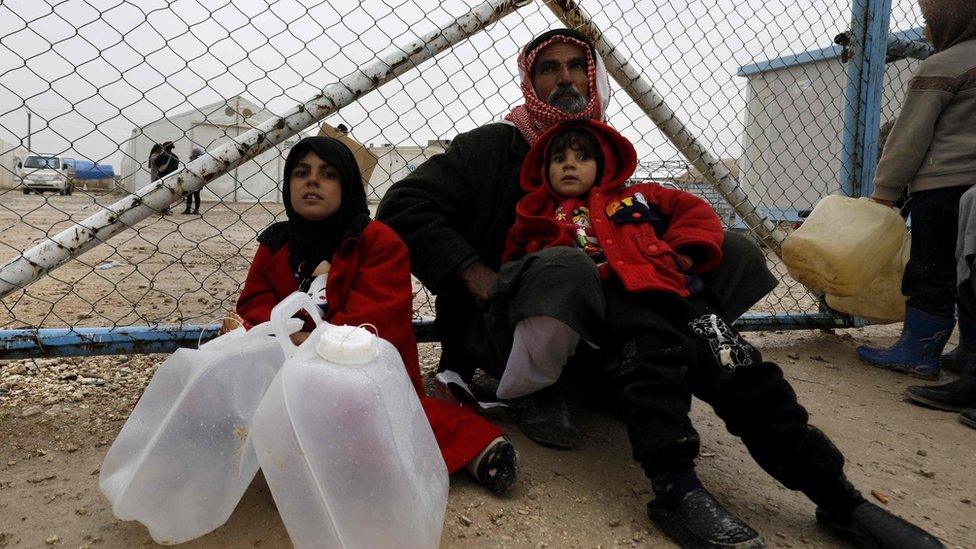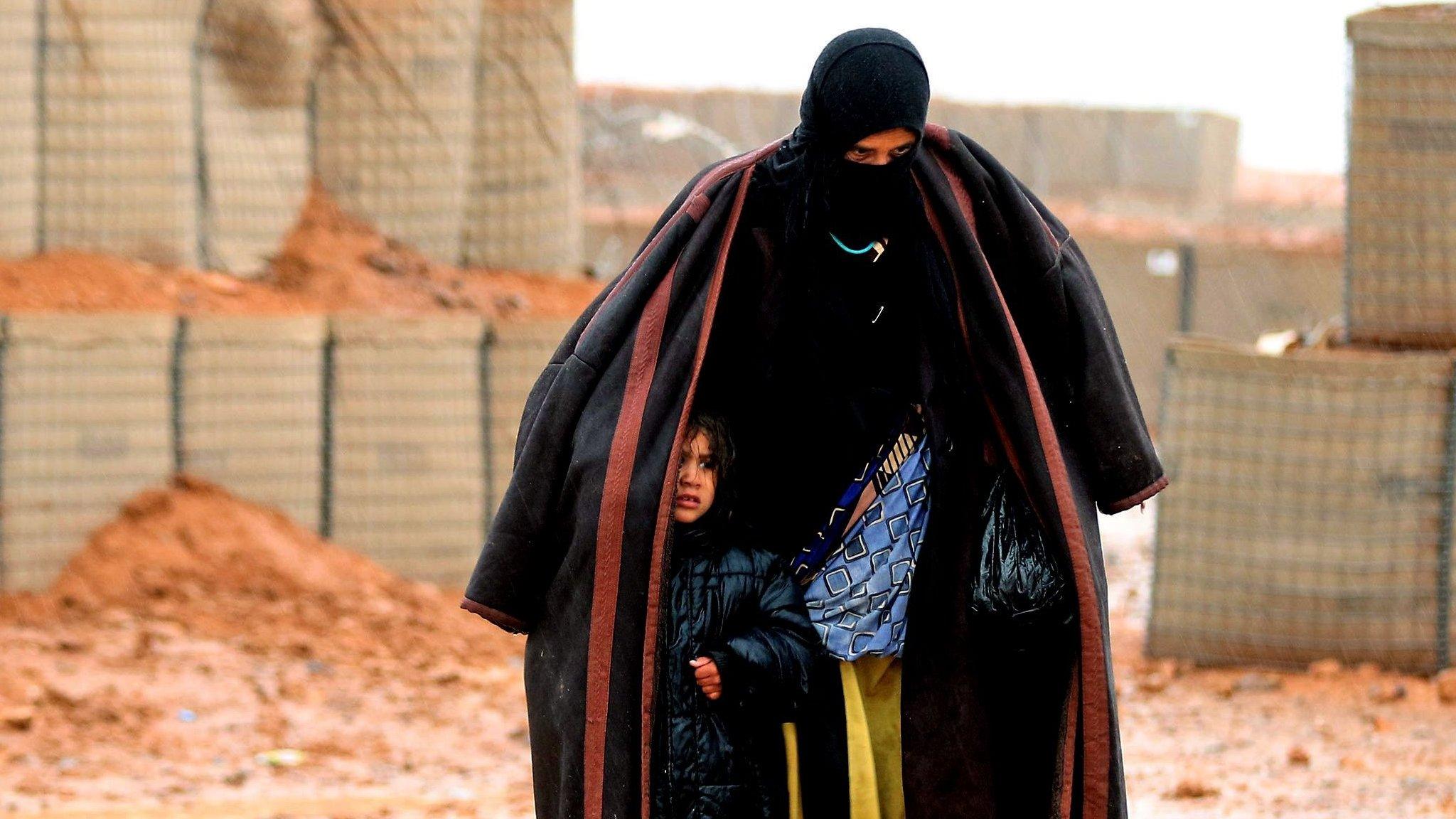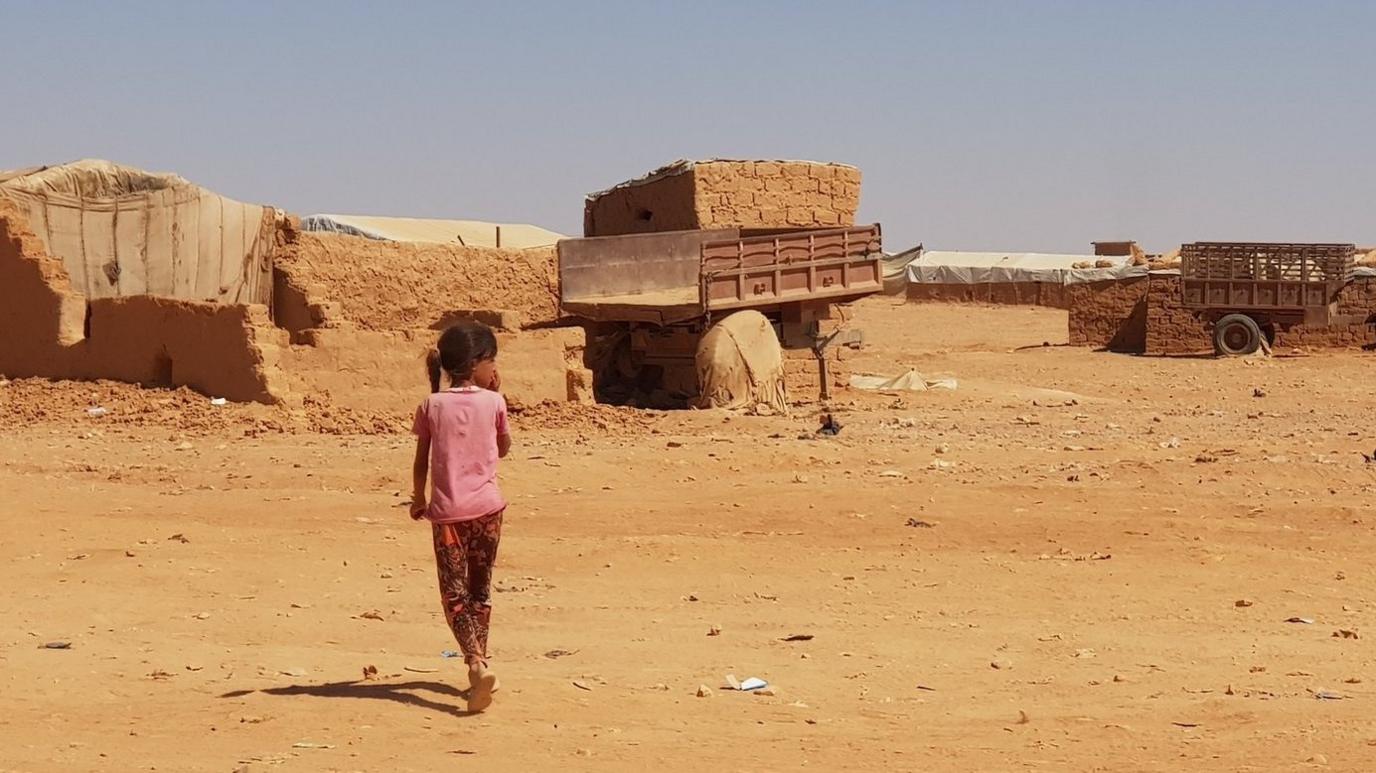Syria war: Displaced babies die due to freezing weather
- Published

Many of the civilians who have fled the fighting in Hajin are living at the al-Hol camp
Fifteen displaced Syrian children - 13 of them aged under one - have died in recent weeks due to cold weather and inadequate medical care, the UN says.
Eight deaths have been reported at the Rukban camp on Jordanian border, where some 45,000 people are stranded.
The other children died while fleeing fighting between US-backed forces and Islamic State militants in the eastern Hajin area of Deir al-Zour province.
Bad weather has also wreaked havoc in Syrian refugee communities in Lebanon.
Several days of strong winds, heavy rain and snow last week caused flooding and damage at more than 360 makeshift sites hosting 11,300 refugees, external.
An eight-year-old refugee girl was swept away by a flood in the northern town of Minieh, while at least 600 refugees had to be relocated in the Bekaa valley.
Refugee homes under water
The UN children's agency, Unicef, said the extreme cold and lack of medical care for mothers before and during birth, as well as for new infants, had exacerbated the already dire conditions at Rukban camp, external, where 80% of the population are women and children.
Families seeking safety amid the heavy violence in Hajin had meanwhile faced difficulties leaving the conflict zone and had been left waiting in the cold for days without shelter or basic supplies, it added.
"The lives of babies continue to be cut short by health conditions that are preventable or treatable," warned Geert Cappelaere, Unicef's Middle East regional director. "There are no excuses for this in the 21st century. This tragic manmade loss of life must end now."


"Without reliable and accessible healthcare, protection and shelter, more children will die day in, day out in Rukban, Deir al-Zour and elsewhere in Syria. History will judge us for these entirely avoidable deaths."
Mr Cappelaere said the need for assistance in Rukban was "beyond urgent" and called "on all sides" to urgently facilitate a humanitarian convoy so lifesaving supplies and services can be delivered.
People have been stranded since 2015 at Rukban, a cluster of more than 10,000 makeshift tents and mud huts in Syria's remote eastern desert, just north of a raised sand barrier where the Syrian, Jordanian and Iraqi borders meet.
The camp's residents want to cross into Jordan, but the kingdom sealed the crossing near Rukban in 2016 after six soldiers were killed in a bomb attack.
In November, a UN aid convoy reached the camp for the first time in 10 months.
- Published3 November 2018

- Published30 October 2018

- Published2 May 2023
